Vietnam vs Thailand: 5 Key Metrics for Biomass Pellet Plant Investment in Southeast Asia
Southeast Asia's booming renewable energy sector makes Vietnam and Thailand prime targets for biomass pellet plant investment. Choosing the right location significantly impacts your project's long-term viability and profitability, especially concerning the crucial biomass pellet machine operation and output. Let's compare these two powerhouses across 5 critical investment indicators:
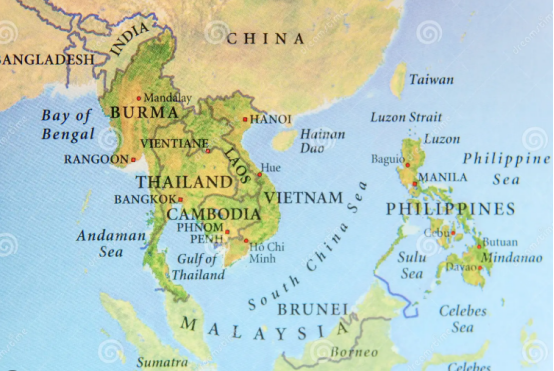
1. Raw Material Availability & Cost:
Vietnam: Boasts immense agricultural residue potential (rice husk, bagasse, coffee husk, wood waste). Prices are generally lower than Thailand, offering a potential cost edge. However, supply chains can be fragmented, requiring significant effort to secure consistent, large-volume feedstock for your biomass pellet machine.
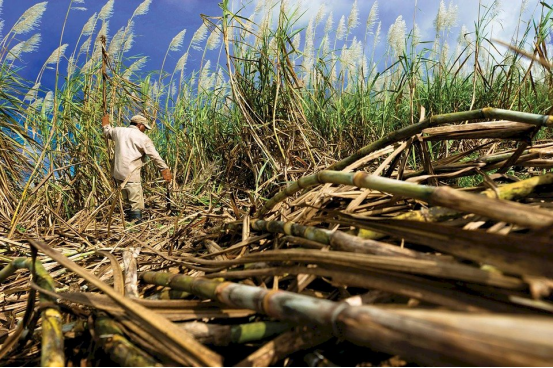
Thailand: Strong supply of wood residues (rubberwood, acacia, eucalyptus), palm kernel shell (PKS), and rice husk. More established agro-forestry industries often lead to better-organized collection and processing infrastructure near potential plant sites. Prices can be slightly higher but potentially more stable.
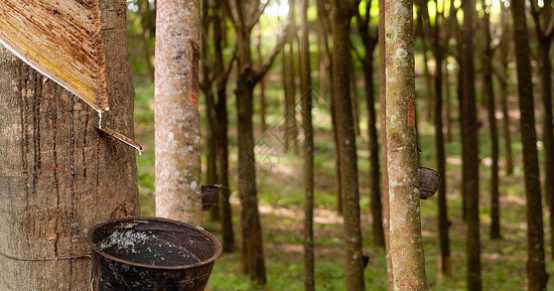
Edge: Vietnam (Cost), Thailand (Stability/Organization)
2. Government Policies & Incentives:
Vietnam: Offers attractive incentives like Corporate Income Tax (CIT) holidays (up to 15 years in some cases), import duty exemptions on equipment (including biomass pellet machines), and land rental reductions. Policy frameworks (e.g., Power Development Plan VIII - PDP8) strongly support biomass energy. Navigating bureaucracy can be complex.
Thailand: Provides solid support via feed-in tariffs (Adder program, now transitioning), CIT reductions, and investment promotion privileges through the BOI (Board of Investment), which may cover machinery imports. Policies are generally stable and well-established.
Edge: Vietnam (Aggressiveness), Thailand (Stability/Ease)
3. Infrastructure & Logistics:
Vietnam: Port infrastructure (especially deep-sea ports for export-focused plants) is rapidly improving but can still face bottlenecks. Road networks connecting biomass sources to plants and ports are developing. Reliable power supply can be a localized concern, impacting biomass pellet machine uptime.
Thailand: Generally superior port infrastructure (e.g., Laem Chabang) and road networks, facilitating both domestic distribution and export. Power grid reliability is typically better across major industrial zones.
Edge: Thailand
4. Labor Costs & Skills:
Vietnam: Offers significantly lower labor costs for both operational staff and technical personnel compared to Thailand. However, finding highly experienced operators or maintenance engineers specifically for biomass pellet machines and complex pellet plants can require more training investment.
Thailand: Higher wage levels but generally has a larger pool of workers with experience in established manufacturing and agro-processing industries, potentially easing the recruitment of semi-skilled and technical staff for pellet production.
Edge: Vietnam (Cost), Thailand (Skills Availability)
5. Target Market Access:
Vietnam: Geographically advantageous for serving the massive East Asian markets (Japan, South Korea) which have high demand for industrial biomass pellets. Growing domestic market potential driven by coal co-firing mandates.
Thailand: Strong position for accessing ASEAN markets and established routes to Europe. Also benefits from a significant and growing domestic market for biomass energy within Thailand's industrial sector.
Edge: Vietnam (East Asia), Thailand (ASEAN/Europe/Domestic)
Investment Decision Summary:
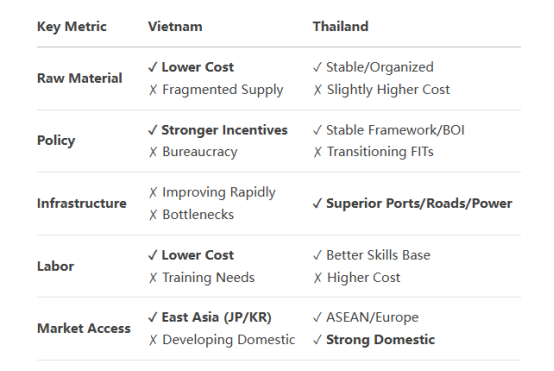
Choose Vietnam if: Securing the absolute lowest feedstock costs is paramount, strong government incentives outweigh administrative hurdles, and your primary target market is Japan/Korea. Be prepared for infrastructure and skilled labor development.
Choose Thailand if: Operational stability, established infrastructure, easier market access to ASEAN/Europe, a strong domestic market, and a readily available skilled workforce are your top priorities. Accept potentially higher baseline costs.
Power Your Southeast Asian Biomass Vision with Rotexmaster
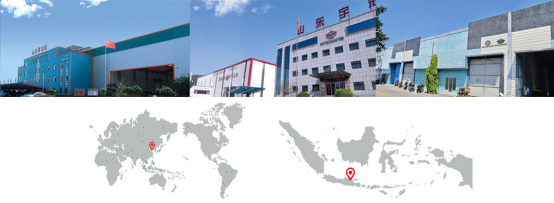
Investing in the right biomass pellet machine technology is as crucial as selecting the optimal location. Shandong Rotexmaster Machinery Co., Ltd. stands as a reliable partner for your biomass pellet plant journey in Vietnam, Thailand, or across the globe.
As a leading Chinese manufacturer specializing in robust and efficient biomass pellet machines and complete pellet production lines, Rotexmaster offers:
Proven Technology: High-capacity ring die pellet mills engineered for durability and consistent output with diverse biomass feedstocks common in Southeast Asia.
Customized Solutions: From standalone machines to fully automated turnkey plants, designed to meet your specific capacity and raw material requirements.
Global Support: Extensive experience supporting international clients with installation, commissioning, training, and after-sales service.
Ready to explore how Rotexmaster's biomass pellet machines can optimize your investment? Contact us today for expert advice and competitive quotations tailored to your Southeast Asian project.